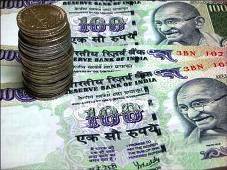 | « Back to article | Print this article |
 Almost one in every three borrowers did not repay loans to microfinance companies since the industry plunged into a crisis in October 2010.
Almost one in every three borrowers did not repay loans to microfinance companies since the industry plunged into a crisis in October 2010.
In absolute terms, close to 9.2 million customers (almost equal to Mumbai's suburban population) have defaulted on loan repayment. Microfinance institutions currently have around 32 million clients in the country.
The borrowers, mostly women from Andhra Pradesh, also form the largest chunk of defaulters in the world, industry players say.
They have now been blacklisted from getting loans from banks and microfinance companies in future.
If the crisis persists, microfinance companies will have to write off around Rs 4,000-6,000 crore of loans in Andhra Pradesh.
The trouble started when the state government passed a new law to curb micro-lending activities by private players in Andhra Pradesh in October 2010.
The legislation affected loan recoveries, impacted profitability of micro-lenders and eroded investors' confidence in the sector.
"Around 9.2 million women now form the largest list of blacklisted borrowers in the world, thanks to the AP Act," Legatum, a multi-billion dollar global fund managing proprietary capital, said.
Legatum is also a majority owner in SHARE Microfin, a Hyderabad-based microfinance company, which has been impacted by the crisis in Andhra Pradesh.
"In the short term, the borrowers might have enjoyed unexpected relief from their obligations, and the politicians in Andhra Pradesh might have successfully increased their popularity among voters, but the longer term impact is already coming into focus.
The credit discipline and culture of responsibility amongst borrowers, carefully nurtured over 20